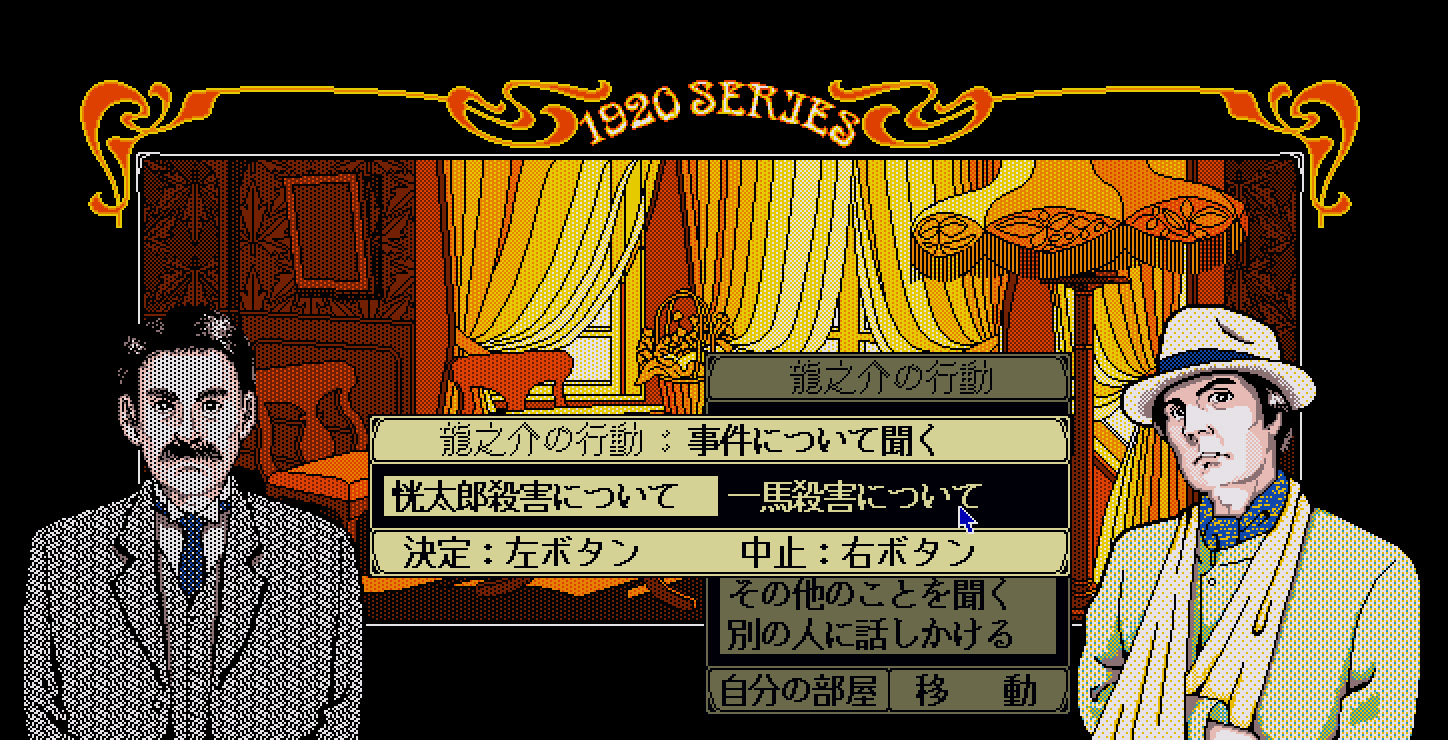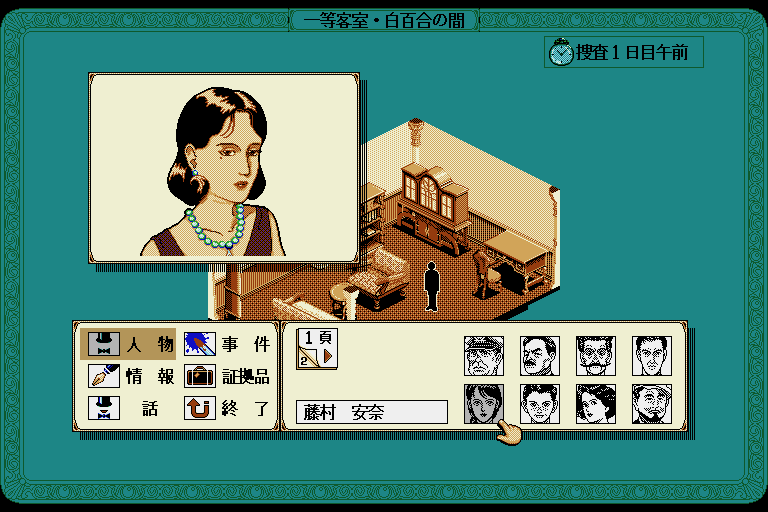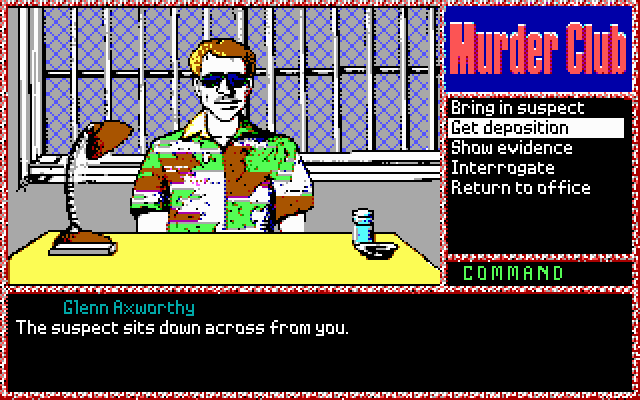No, I mean those moments you have to sit down and lay your case with the suspects. Those moments are instant game over scenarios and you only really need to memorize the right answers to get through, no deduction is really necessary.
I don't agree even in the context of Hotel Dusk, all the right answers are knowable through context clues, plus you can actually save topics of conversation from one interrogation and use them later on different characters to get more information/different correct answers. So there is some depth to it.
That being said, for a Japanese mystery/detective adventure game the NDS CiNG games place way less emphasis on deductions as the main puzzle mechanic compared to similar games of that era. Instead incorporating western style inventory object puzzles and unique hardware use. Still, it's worth mentioning Rika Suzuki has over a decade long history of making more orthodox/traditional style mystery adventures (emphasis on following leads and deductions) when she was at Riverhillsoft before forming CiNG in its wake.
 (fantastic YT vid about Suzuki's career)
(fantastic YT vid about Suzuki's career)
Rika is no stranger to making games like JB Harold Murder Club or the Todo Ryunosuke 1920s Series, which were far more open ended and expected players to piece together clues and follow leads at their own discretion to solve the mystery.
These games were so focused on chasing down leads that they actually shipped with notebooks, maps, and character relation charts that you were expected to fill out over the duration of the game to solve the mystery.
So, that pedigree in conjunction with the gameplay description from their campfire campaign actually leads me to believe this will be the most emphasis Suzuki has put on mystery solving gameplay since Glass Rose.
Features
Interesting worldview based on the legend of Hitler
Stylish and unique characters
3D map that allows you to freely explore the old castle
A word cloud system that allows users to deduce and discuss with keywords
An auction part where the truth of memories is revealed through images and puzzles
Multiple endings that change the future depending on the choices made by the main character.
A full-fledged mystery adventure
Game System
The game consists of three parts: [Investigation Part], [Auction Part], and [Deduction Part]
Beginning of the day: Information on today's target and items to be auctioned arrives at your room via a pneumatic tube.
Investigation part: Move around the old castle and talk with the characters
Searching the room for items
Search for books in the library
Auction part: 3 stages: first stage, second stage, and final stage
Deduction part: Common room ( communicate with other participants), your own room ( think about and create a relationship chart)
Still im not sure if there's a hard connection between the mystery solving gameplay and the subtlety/deftness with which the subject matter is handled. I think the story could play out well regardless, but there is plenty reason to think this game will place higher priority on mystery solving than the CiNG games.








